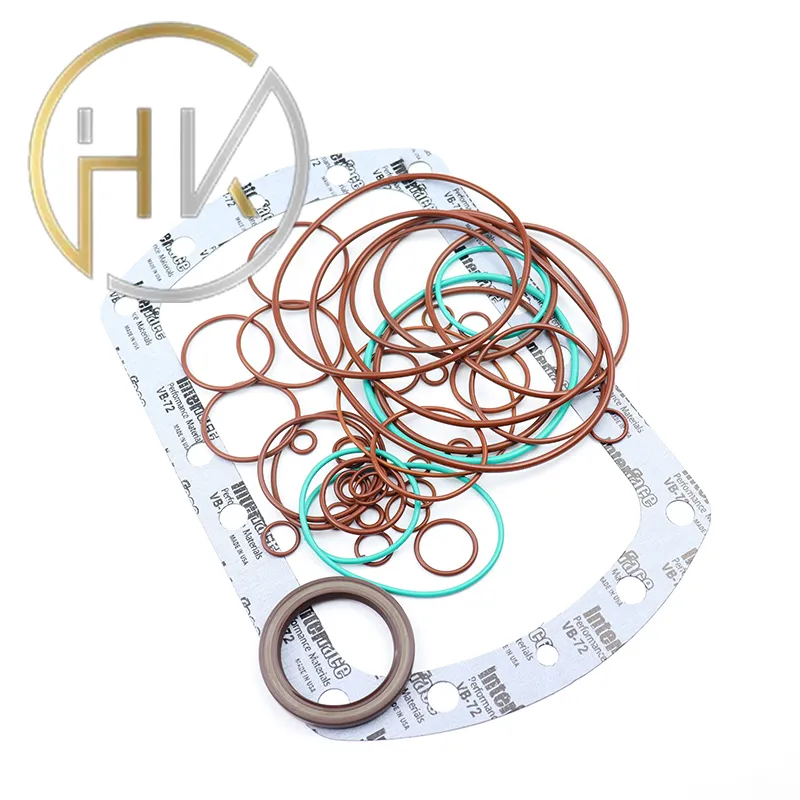Nov . 09, 2024 07:53 Back to list
Exploring Current Trends in Oil Seal Pricing and Market Dynamics
Understanding Oil Seal Prices A Comprehensive Overview
Oil seals are essential components in various mechanical systems, designed to prevent the leakage of fluids and maintain the integrity of machinery. These seals play a crucial role in ensuring the efficient operation of engines, pumps, and other mechanical devices by keeping lubricants in and contaminants out. Given their fundamental importance, the price of oil seals is a topic of interest for manufacturers, engineers, and purchasing departments alike.
Factors Influencing Oil Seal Prices
Several factors contribute to the pricing of oil seals, making it a complex topic that encompasses material quality, manufacturing processes, market demand, and more.
1. Material Quality The material used to manufacture oil seals significantly impacts their price. Common materials include rubber, silicone, and thermoplastics. High-quality materials that offer better resistance to wear, heat, and chemicals tend to be more expensive. Specialty materials, such as fluorinated elastomers, can further increase costs due to their superior performance in extreme conditions.
2. Design Complexity The design of the oil seal can also affect its price. Simple seals are typically less expensive, while those requiring more intricate designs, such as dual-lip or metal-cased seals, will generally cost more. The customization of seals for specific applications adds to the complexity and can drive prices higher.
3. Manufacturing Process The method by which oil seals are produced plays a crucial role in their cost structure. Techniques such as injection molding and extrusion have associated costs that can vary significantly based on the scale of production. High-volume production might lower per-unit costs through economies of scale, while low-volume runs tend to maintain higher prices due to the fixed costs involved.
4. Market Demand and Supply As with any product, the law of supply and demand influences oil seal pricing. In times of high demand—such as during a boom in automotive production or construction—prices can rise. Conversely, an oversupply in the market can lead to lower prices as manufacturers compete for customers. Seasonal fluctuations and global economic conditions also play a role in shaping market dynamics.
5. Brand Reputation Well-established brands that have built a reputation for quality and reliability can command higher prices. Customers are often willing to pay a premium for brands that offer proven performance and longevity, which can be critical in applications where failure is not an option.
oil seal price

6. Geopolitical Factors The global sourcing of raw materials can be influenced by geopolitical issues, trade tariffs, and international regulations. Such factors can lead to fluctuations in raw material costs, subsequently affecting the final pricing of oil seals.
Price Range of Oil Seals
The price of oil seals can vary widely, depending on the factors mentioned above. Basic oil seals might start as low as $1 to $5 each, commonly found in mass-produced applications. Mid-range oil seals, which might feature better materials or designs, could range from $5 to $20. High-performance or specialty seals can cost anywhere from $20 to $100 or even more, particularly when they are custom-manufactured for specific industrial applications.
Tips for Cost Management
For businesses looking to manage oil seal costs, several strategies can be helpful
- Bulk Purchasing Buying in bulk can reduce unit costs, capitalizing on economies of scale. - Supplier Relationships Developing solid relationships with suppliers can lead to better pricing, especially if purchasing regularly. - Regular Review of Specifications Regularly reviewing seal specifications to ensure they meet current operational needs can prevent overspending on unnecessary features.
Conclusion
Oil seal prices are influenced by a multitude of factors, from material quality and design complexity to market dynamics and geopolitical considerations. Understanding these elements can aid businesses in making informed purchasing decisions that balance quality and cost. As industries continue to evolve and innovate, the importance of high-quality oil seals will remain paramount, making it essential to stay updated on market trends and pricing strategies. By doing so, companies can ensure the reliability and longevity of their machinery while maintaining their budgets effectively.
-
Unlocking the Potential of Hydraulic Systems with Essential Sealing Solutions
NewsAug.06,2025
-
Unleash the Power of Your Hydraulic Systems with Our Premium Seal Kits
NewsAug.06,2025
-
Specialized Hydraulic Seal Kits for Breakers, Pistons, and Presses
NewsAug.06,2025
-
Revitalize Hydraulic Systems with Premium Repair and Seal Kits
NewsAug.06,2025
-
Fortify Your Cylinders with Premium Sealing Solutions
NewsAug.06,2025
-
Elevate Hydraulic System Reliability with Specialized Seal Kits
NewsAug.06,2025
-
TCN Oil Seal Metal Ring Reinforcement for Heavy Machinery
NewsJul.25,2025
Products categories
















